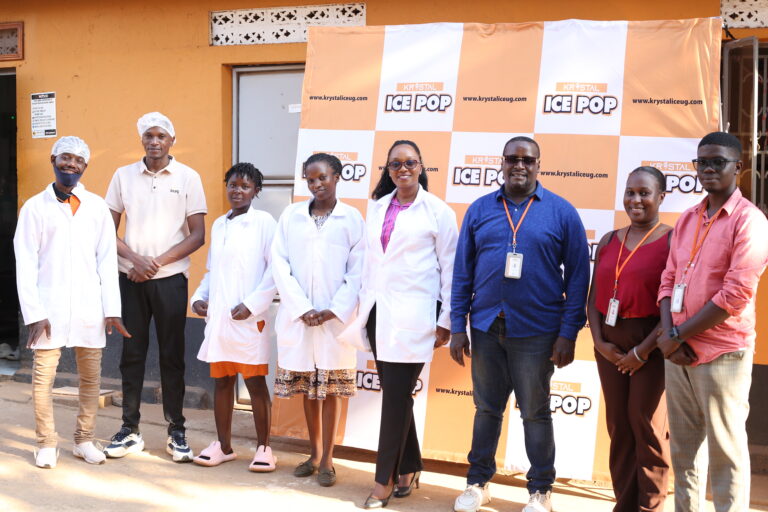27-28 NOVEMBER 2020 | MoTIV & Online
Composing 90 per cent of the private sector, small and medium enterprises (SMEs) play an important role in driving Uganda’s transition to a green economy. By bringing green products, services and technologies to the market through scalable business models, Uganda’s SMEs have the potential to transform the economy and create jobs across sectors. However, SMEs in Uganda continue to face challenges when it comes to accessing markets and finance, and acquiring the requisite business development support to scale their business models and impact. This is especially true for “green” SMEs. In particular, the ability of enterprises to access loans to invest in their own growth – whether through staff trainings, asset acquisition, product development, exploration of new markets, or other activities – is low. Even before the added challenges posed by Covid-19, less than 4 per cent of enterprises reported in the most recent National Small Business Survey of 2015 that they have received start-up capital from banks. These challenges are indeed exacerbated by the recent impacts of Covid-19.
From Bankable Businesses to a Resilient, Green Economy in Uganda
A concerted effort among multiple stakeholders – including enterprise incubators, accelerators, banks, donors, business development (BDS) organisations, and the government – is pivotal to ignite the potential of green SMEs across sectors and create an enabling environment for these enterprises to grow while boosting inclusion and resilience in the Ugandan economy. During Kampala Innovation Week 2020, the UGEFA Green Entrepreneurship Day brought together representatives from these key ecosystem stakeholder groups and green SMEs to celebrate the achievements of enterprises while collaboratively mobilising support for building the capacities and financing available to green SMEs across sectors in Uganda. Kampala Innovation Week welcomed 150 participants in person plus an additional 5,000+ people joining digitally from across Uganda. We were joined by a programme of expert speakers and two UGEFA-supported green enterprises as part of the Enterprise Exhibition, WANA Energy Solutions – offering clean and accessible LPG for households – and Gorrilla Conservation Coffee – “saving gorillas – one sip at a time”.
View UGEFA Green Entrepreneurship Day @ Kampala Innovation Week 2020 highlights here.
|
27 NOVEMBER 2020 | GREEN ENTREPRENEURSHIP DAY hosted by UGEFA |
|
|
10:00 – 10:20 |
Setting the Scene: Financing Uganda‘s Green Economy through entrepreneurial solutions
|
|
10:25 – 11:25 |
Practitioner Dialogue: Banking on SMEs for an inclusive, resilient economy in Uganda
|
|
14:00 – 15:30 |
Practitioner Lab: Tapping into green-climate finance as a financial institution in Uganda
|
|
14:00 – 15:30 |
UGEFA Application Clinic (for enterprises interested in applying to the UGEFA programme) |
|
28 NOVEMBER 2020 | INNOVATION DAY |
|
|
14:00 – 15:30 |
Practitioner Lab: Delivering growth capital to green SMEs through tailored financial solutions
|
Key Outcomes
The public and private sectors in Uganda are working on plans to rebuild the economy. However, these efforts should pair recovery action with climate action to ensure that the government, and the companies they support, emerge stronger than before. To boost economic growth in line with green growth objectives, drive job creation and increase resilience to future shocks, speakers during UGEFA’s Green Entrepreneurship Day urged Uganda’s government to prioritise policy and spending to:
- Accelerate the transition to an inclusive, just, resilient, zero-carbon economy by implementing policies, offering incentives and funding projects that accelerate the delivery of a just transition to economy-wide net-zero emissions by 2050 at the latest.
- Advance the delivery of 100% clean power by investing in the deployment of renewable energy, solutions to expand energy storage and on/off-grid energy access, and enable corporate procurement of renewables.
- Enable clean mobility by increasing funding for electric public transport and electric vehicle (EV) charging infrastructure, and support fiscal incentives for electric vehicle purchases.
- Deliver zero-carbon infrastructure and buildings by launching home and building efficiency programmes and utilising public spending on infrastructure to drive demand for low-carbon materials.
- Support industry to transition to zero-emission by investing in R&D, demonstrating and deploying emerging zero-carbon technologies while using the power of public procurement to drive demand for zero-carbon materials.
In all these endeavours, green SMEs have a central role to play.
Enterprises from across sectors can benefit from looking to the examples of green SMEs while adapting their own business to improve resource efficiency and promote environmental sustainability. To ensure SMEs across sectors are reducing risks, building resilience and setting themselves up for long-term success in a zero-carbon future, those receiving long-term public financial assistance were requested to invest in low-carbon solutions that create new jobs. More broadly, companies should prioritise investment in available solutions like the retrofitting of buildings, deployment of renewable energies or in achieving mass production and economies of scale in technologies that can decarbonise industry. This will support the creation of new “green jobs” now while reducing the risks of climate change and broader environmental degradation long into the future.
In building a greater role for green SMEs and enabling companies to invest in greening their activities, the financial sector in Uganda was called on to:
Explore new options to mitigate environmental risks and increase capital flows to green SMEs capable of delivering a green, inclusive economy in Uganda. Since the outbreak of the pandemic, most lenders have focused on serving existing clients by increasing their financing, restructuring loans, or deferring payments to meet their clients’ liquidity challenges. By doing so, lenders are also making sure their current portfolio is not at immediate risk. However, in the long-term, there are tremendous opportunities for lenders to expand their business to bankable green SMEs across sectors, which have proven track record and adopt market-driven solutions to major environmental challenges in Uganda.
It is essential that lenders offer non-traditional options to mitigate risks and increase the flow of capital to SMEs for investment in environmentally friendly growth. While lenders may be tempted to take a more conservative stance, those with sufficient capacity should be initiating even more new deals in order for SMEs to keep goods and services flowing through the highly interdependent market value chains. SMEs across Uganda are already offering viable business models that employ sustainably sourced inputs, offer renewable energy and resource efficient products and services, contribute to biodiversity and wildlife conservation, and more.
To explore “What is a green SME?” and “How do green SMEs contribute to achieving our green growth and development goals in Uganda?”, check out our Sectoral Briefs that dive deeper into the Green Manufacturing, Clean Energy and Sustainable Tourism sectors here: https://ugefa.eu/news/sectoral-briefs-2020
Are you interested in exploring these and related topics further? At UGEFA, we facilitate access to finance for green SMEs in partnership with Ugandan banks. Contact us now at info@ugefa.eu
View UGEFA Green Entrepreneurship Day @ Kampala Innovation Week 2020 highlights here.
Download further event information including speaker profiles here.
This multi-stakeholder dialogue forum is part of the implementation of the Uganda Green Finance Enterprise Accelerator (UGEFA), a four-year project funded fully by the European Union. It is implemented by adelphi research gGmbH, a public policy consultancy and think tank focused on climate, environment and development based in Germany. The project is implemented in collaboration with Finding XY and SEED.






